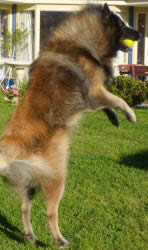Theory and Hypothesis
In Mathematics:
- a theory is a well-established set of theorems and principles that make up a branch of mathematics
- A hypothesis is a statement that could be true, which might then be tested
So when someone says "I have a theory" they should say "I have a hypothesis", because in mathematics a theory is actually well established.
Theory
A theory is a set of ideas that explain something.
In Mathematics a theory is a well-established and consistent body of theorems and principles that make up a branch of mathematics, such as Number Theory, Set Theory, etc.
In Science a theory is well understood, has been properly examined, and can be tested again and again and always works, such as the Theory of Gravity.
But in everyday language a theory is an explanation that may be true but has not been properly tested. So be careful about this confusing difference!
Hypothesis
A hypothesis is a statement that could be true, which might then be tested.

Example: Dogs
Sam has a hypothesis that "large dogs are better at catching tennis balls than small dogs".
We can test that hypothesis by having hundreds of dogs of different sizes try to catch tennis balls.
Sometimes the hypothesis won't be tested, it is simply a good explanation (which could be wrong). Conjecture is a better word for this.
Example: Water
If I water my plant more, it will grow faster.
Testing on just one plant would be unreliable, but you can say it is your conjecture.
Example: Sunrise
We notice the temperature drops just as the sun rises.
Our hypothesis is that the sun warms the air high above us, which rises up, and then cooler air comes from the sides.
How could we test this?
Conclusion
- a theory is well established
- a hypothesis could be true, but needs testing
- when someone says "I have a theory" they should say "I have a hypothesis"